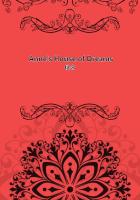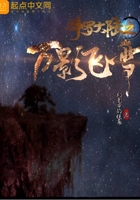I stay for Turnus, whose devoted head Is owing to the living and the dead.
My son and I expect it from his hand;
'T is all that he can give, or we demand.
Joy is no more; but I would gladly go, To greet my Pallas with such news below."The morn had now dispell'd the shades of night, Restoring toils, when she restor'd the light.
The Trojan king and Tuscan chief command To raise the piles along the winding strand.
Their friends convey the dead fun'ral fires;Black smold'ring smoke from the green wood expires;The light of heav'n is chok'd, and the new day retires.
Then thrice around the kindled piles they go (For ancient custom had ordain'd it so)Thrice horse and foot about the fires are led;And thrice, with loud laments, they hail the dead.
Tears, trickling down their breasts, bedew the ground, And drums and trumpets mix their mournful sound.
Amid the blaze, their pious brethren throw The spoils, in battle taken from the foe:
Helms, bits emboss'd, and swords of shining steel;One casts a target, one a chariot wheel;
Some to their fellows their own arms restore:
The fauchions which in luckless fight they bore, Their bucklers pierc'd, their darts bestow'd in vain, And shiver'd lances gather'd from the plain.
Whole herds of offer'd bulls, about the fire, And bristled boars, and woolly sheep expire.
Around the piles a careful troop attends, To watch the wasting flames, and weep their burning friends;Ling'ring along the shore, till dewy night New decks the face of heav'n with starry light.
The conquer'd Latians, with like pious care, Piles without number for their dead prepare.
Part in the places where they fell are laid;And part are to the neighb'ring fields convey'd.
The corps of kings, and captains of renown, Borne off in state, are buried in the town;The rest, unhonor'd, and without a name, Are cast a common heap to feed the flame.
Trojans and Latians vie with like desires To make the field of battle shine with fires, And the promiscuous blaze to heav'n aspires.
Now had the morning thrice renew'd the light, And thrice dispell'd the shadows of the night, When those who round the wasted fires remain, Perform the last sad office to the slain.
They rake the yet warm ashes from below;
These, and the bones unburn'd, in earth bestow;These relics with their country rites they grace, And raise a mount of turf to mark the place.
But, in the palace of the king, appears A scene more solemn, and a pomp of tears.
Maids, matrons, widows, mix their common moans;Orphans their sires, and sires lament their sons.
All in that universal sorrow share, And curse the cause of this unhappy war:
A broken league, a bride unjustly sought, A crown usurp'd, which with their blood is bought!
These are the crimes with which they load the name Of Turnus, and on him alone exclaim:
"Let him who lords it o'er th' Ausonian land Engage the Trojan hero hand to hand:
His is the gain; our lot is but to serve;'T is just, the sway he seeks, he should deserve."This Drances aggravates; and adds, with spite:
"His foe expects, and dares him to the fight."Nor Turnus wants a party, to support His cause and credit in the Latian court.
His former acts secure his present fame, And the queen shades him with her mighty name.
While thus their factious minds with fury burn, The legates from th' Aetolian prince return:
Sad news they bring, that, after all the cost And care employ'd, their embassy is lost;That Diomedes refus'd his aid in war, Unmov'd with presents, and as deaf to pray'r.
Some new alliance must elsewhere be sought, Or peace with Troy on hard conditions bought.
Latinus, sunk in sorrow, finds too late, A foreign son is pointed out by fate;And, till Aeneas shall Lavinia wed, The wrath of Heav'n is hov'ring o'er his head.
The gods, he saw, espous'd the juster side, When late their titles in the field were tried:
Witness the fresh laments, and fun'ral tears undried.
Thus, full of anxious thought, he summons all The Latian senate to the council hall.
The princes come, commanded by their head, And crowd the paths that to the palace lead.
Supreme in pow'r, and reverenc'd for his years, He takes the throne, and in the midst appears.
Majestically sad, he sits in state, And bids his envoys their success relate.
When Venulus began, the murmuring sound Was hush'd, and sacred silence reign'd around.
"We have," said he, "perform'd your high command, And pass'd with peril a long tract of land:
We reach'd the place desir'd; with wonder fill'd, The Grecian tents and rising tow'rs beheld.
Great Diomede has compass'd round with walls The city, which Argyripa he calls, From his own Argos nam'd.We touch'd, with joy, The royal hand that raz'd unhappy Troy.
When introduc'd, our presents first we bring, Then crave an instant audience from the king.
His leave obtain'd, our native soil we name, And tell th' important cause for which we came.
Attentively he heard us, while we spoke;
Then, with soft accents, and a pleasing look, Made this return: 'Ausonian race, of old Renown'd for peace, and for an age of gold, What madness has your alter'd minds possess'd, To change for war hereditary rest, Solicit arms unknown, and tempt the sword, A needless ill your ancestors abhorr'd?
We- for myself I speak, and all the name Of Grecians, who to Troy's destruction came, Omitting those who were in battle slain, Or borne by rolling Simois to the main-Not one but suffer'd, and too dearly bought The prize of honor which in arms he sought;Some doom'd to death, and some in exile driv'n.
Outcasts, abandon'd by the care of Heav'n;So worn, so wretched, so despis'd a crew, As ev'n old Priam might with pity view.
Witness the vessels by Minerva toss'd In storms; the vengeful Capharean coast;Th' Euboean rocks! the prince, whose brother led Our armies to revenge his injur'd bed, In Egypt lost! Ulysses with his men Have seen Charybdis and the Cyclops' den.
Why should I name Idomeneus, in vain Restor'd to scepters, and expell'd again?
Or young Achilles, by his rival slain?















